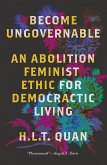The first full-length English translation of the 1909 book from the revolutionary Russian Marxist feminist Alexandra Kollontai on the state of the contemporary bourgeois women's movement and the role of working-class women in the struggle for women's equality
In this classic text from 1909, Alexandra Kollontai, a leading early figure in the Marxist feminist movement, discusses the history and socioeconomic roots of the struggle for women's equality. Examining the movement for women's equality in late 19th century Russia, she discusses how upper-class liberal feminists ignored or patronized working-class women. The interests of upper-class women and their focus on suffrage and philanthropy meant that their organizations and movements could not be reliable allies to women of the working class.
Many of the issues that Kollontai touches on in this book remain alive today, as the struggle for gender equality is dominated by liberal bourgeois groups while revolutionary leftists attempt to address intersecting systems of oppression without being co-opted by neoliberal feminism. Kollontai's argument that the feminist movement needs to be part of broader working class struggles for liberation is as important and powerful today as it was in the early twentieth century.
In this classic text from 1909, Alexandra Kollontai, a leading early figure in the Marxist feminist movement, discusses the history and socioeconomic roots of the struggle for women's equality. Examining the movement for women's equality in late 19th century Russia, she discusses how upper-class liberal feminists ignored or patronized working-class women. The interests of upper-class women and their focus on suffrage and philanthropy meant that their organizations and movements could not be reliable allies to women of the working class.
Many of the issues that Kollontai touches on in this book remain alive today, as the struggle for gender equality is dominated by liberal bourgeois groups while revolutionary leftists attempt to address intersecting systems of oppression without being co-opted by neoliberal feminism. Kollontai's argument that the feminist movement needs to be part of broader working class struggles for liberation is as important and powerful today as it was in the early twentieth century.
Dieser Download kann aus rechtlichen Gründen nur mit Rechnungsadresse in A, D ausgeliefert werden.









